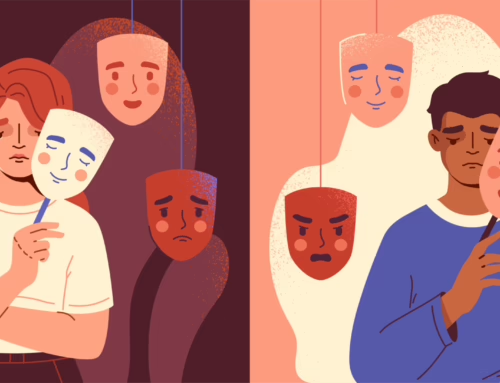Can Vitamin D Deficiency Cause Depression and Anxiety? The Overlooked Link to Mental Health
What Is Vitamin D and Why Does It Matter?
Vitamin D—often called the “sunshine vitamin”—is a fat-soluble vitamin essential for numerous functions in the body. It helps with:
- Calcium absorption and bone health
- Immune system regulation
- Nervous system function
- Brain development and neurotransmitter activity
While many people associate vitamin D with physical health, emerging research shows that it also plays a key role in emotional and mental well-being.
How Common Is Vitamin D Deficiency?
Vitamin D deficiency is more common than many realize. In the U.S., it’s estimated that over 40% of adults have insufficient levels—especially during the fall and winter months, or in regions with less sunlight.
You’re at higher risk if you:
- Spend most of your time indoors
- Live in northern latitudes
- Have darker skin (which reduces vitamin D synthesis from sunlight)
- Use sunscreen consistently
- Have a medical condition affecting absorption (like celiac or Crohn’s disease)
Can Vitamin D Deficiency Cause Depression or Anxiety?
The short answer: yes, it can contribute—and in some people, significantly.
1. Mood Regulation and Vitamin D
Vitamin D receptors exist throughout the brain, including areas involved in mood regulation, like the prefrontal cortex and hippocampus. It influences the production of key neurotransmitters like:
- Serotonin – involved in happiness, calm and emotional stability
- Dopamine – connected to motivation and pleasure
When vitamin D levels are low, these systems can become imbalanced, potentially leading to symptoms like:
- Low mood or sadness
- Fatigue or lethargy
- Anxiety or restlessness
- Trouble concentrating
- Sleep disturbances
2. Research Evidence
A growing body of research links vitamin D deficiency with increased rates of depression, particularly in individuals already at risk. Several studies have also suggested a connection between low vitamin D levels and anxiety symptoms, though the relationship is still being explored.
While vitamin D deficiency may not be the sole cause of mental health struggles, it can amplify or worsen pre-existing conditions—especially when left untreated.
Why Testing and Treatment Matter
Vitamin D deficiency is easily missed during routine mental health care. If someone is struggling with depression, anxiety or chronic fatigue, providers may overlook nutritional and physiological causes.
That’s why a holistic approach to mental health treatment—one that considers the full body-mind connection—is essential.
How Tapestry Supports Whole-Person Mental Health
At Tapestry, we understand that mental health is about more than just brain chemistry—it’s about the full picture of who you are, including your physical health, nutrition, environment and lived experience.
We take a comprehensive, integrated approach to care by:
- Offering medical evaluations that include screening for vitamin deficiencies and other biological contributors to mental health
- Providing nutritional counseling to support brain health and emotional resilience
- Combining evidence-based therapies like CBT and DBT with whole-body strategies like mindfulness, movement and dietary support
- Treating co-occurring conditions such as depression, anxiety, trauma or substance use disorders
- Helping clients build sustainable wellness habits, including managing vitamin levels through supplements, sunlight and food sources
Whether you’ve been diagnosed with depression or anxiety, or you’re simply feeling off and unsure why, we help uncover the root causes—not just treat the symptoms.
What You Can Do If You Suspect a Deficiency
If you think you may have low vitamin D, it’s important to:
- Get your levels tested through a blood test (ask your doctor or care provider).
- Talk to a qualified provider about whether supplementation is needed and what dosage is safe.
- Consider full-spectrum support if you’re also experiencing mental health symptoms.
Vitamin D alone may not be a cure for depression or anxiety—but for some, addressing this missing piece can bring real relief.
You Deserve to Feel Better—Inside and Out
At Tapestry, we see the whole person—not just the diagnosis. If you’re struggling with symptoms of depression or anxiety, we’re here to help you uncover the full picture and develop a personalized plan for healing.
Reach out today to learn how our integrated mental health treatment can support your journey—body, mind and spirit.






